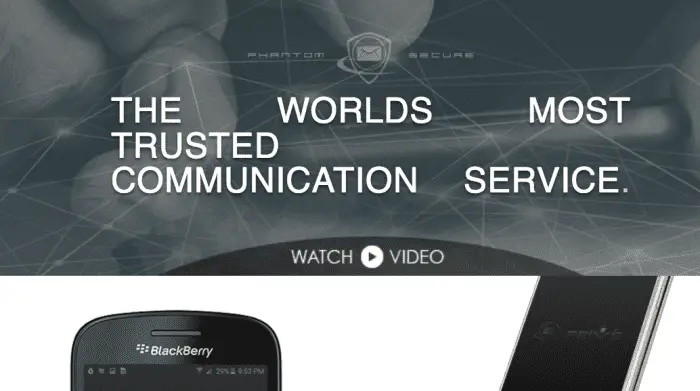
According to motherboard reports, over the years, some companies have specialized in the sale of encrypted mobile phones, customized BlackBerrys, and Android machines. In some cases, cameras and microphones have been removed and security information can only be sent through private networks. It is alleged that some companies mainly provide services for criminal organizations.

According to the latest court records and informed sources, the FBI has now arrested one of the most well known of these companies, Phantom Secure. Sources said that the FBI’s Phantom operation was conducted in cooperation with Canadian and Australian authorities.
A lawsuit filed in southern California on Thursday accused Vincent Ramos, Phantom’s founder, and CEO, of conspiring to commit corporate fraud, plotting drugs, and teaching others. According to the court’s decision, Ramos was arrested on the same day. Crucially, the lawsuit alleges that Ramos and his company Phantom not only simply committed crimes, but that its existence was meant to facilitate criminal activities.
Nicholas Cheviron, an FBI special agent, pointed out that even the notorious Sinaloa drug trafficking group had used Phantom equipment, and the “top members” of transnational criminal groups have all purchased Phantom’s mobile phones. According to another informed source, these devices are sold in Mexico, Cuba, and Venezuela, and the Hells Angels gang is also one of its services. Cheviron estimates that about 20,000 Phantom devices are used worldwide. Nearly half of them are in Australia, which brings Phantom’s company millions of dollars in revenue.
In addition to removing the microphones and cameras in the BlackBerry, Phantom will also remove GPS navigation, Internet browsing, and regular SMS services inside. After that, they will install a software called Pretty Good Privacy (PGP) to send encrypted messages and send them via an overseas server. At the same time, Phantom can also remotely clear data from devices detained by the authorities.
In order to find Phantom’s criminal evidence, the RCMP acted as a drug dealer and purchased Phantom’s equipment. After that, RCMP asked the company whether there was a safe route for sending information such as “Making Ecstasy to Montreal.” The latter responded that it was “acceptable”. Later, RCMP pretended to arrest a suspect who had used the Phantom device and asked Phantom to remotely clear the data. After that, RCMP undercover agents continued to expand their operations and in February 2017 they even met with Ramos in Las Vegas. Unknowing Ramos told the undercover police that they also made equipment specifically for drug dealers.
In the past few years, law enforcement agencies have won several criminal-oriented organizations that sell encrypted phones. In 2016, the Dutch police arrested Ennetcom holders, allegedly killers, drug dealers, and other serious criminals are the objects of their services. In 2017, the Dutch authorities also dismantled PGP Sure, which specializes in providing services for criminal activities.
Source: motherboard.vice.com